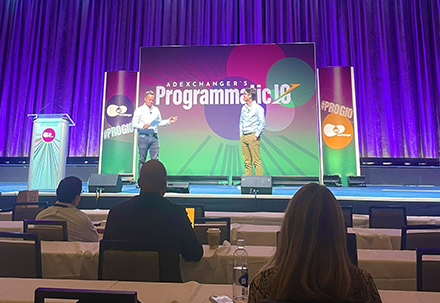 |
||||||||||||
|
||||||||||||
| The FTC Is Not Fooling Around with Big Tech |
 |
| Monopolies are under fire right now. Big tech has a major power looking over its shoulder based on alleged offenses against antitrust laws, and if the FTC has its say, these global conglomerates will need to restructure their business practices This isn’t the first time the FTC has called out the triopoly. But this time, the culprit is Jeff Bezos' brainchild, Amazon. Amazon vs. FTC: Last week, U.S. regulators and 17 states filed an antitrust lawsuit against Amazon. The federal government and a bipartisan group of state attorneys argue that Amazon is a monopolist that stifles its competitors, offering unfair prices to sellers and consumers. More specifically, Amazon allegedly punishes sellers for offering lower prices and pressures them into paying for Amazon's delivery network. "Amazon is a monopolist and it is exploiting its monopolies in ways that leave shoppers and sellers paying more for worse service," said FTC Chair Lina Khan. "In a competitive world, a monopoly hiking prices and degrading service would open up rivals and potential rivals to ... grow and compete. But Amazon's unlawful monopolistic strategy has closed off that possibility, and the public is paying dearly." SHOCKER…Amazon denies these allegations. The tech giant released a statement arguing that the FTC's lawsuit does not represent Amazon's business practices. They assert that their mission is to protect consumers and that their business practices helped garner competition and gave shoppers and sellers better options. "If the FTC gets its way," wrote Amazon General Counsel David Zapolsky, "the result would be fewer products to choose from, higher prices, slower deliveries for consumers, and reduced options for small businesses — the opposite of what antitrust law is designed to do." |
| On the surface, this lawsuit is about monopolies, and that is true. But if you examine it closely, this case deals heavily with the concept of user experience. It is a concept constantly evolving in digital media and has caused a reckoning in ad tech. Over the past few years, the federal government has warned large publishers to rework their business practices based on updated privacy regulations. This digital media reckoning stems heavily from consumer critiques, but it also links back to the election of the current resident in the Oval Office — President Joe Biden. Former AdMonsters Editorial Director Gavin Dunaway predicted this string of events back in 2020. He wrote there will be "additional antitrust crackdowns against large tech platforms — starting with a major amendment to the apparently hastily constructed and politically motivated antitrust suit against Google." Anyone paying attention knows that Gavin's predictions were correct. For the past couple of years, the antitrust season has continued to rain down on Big Tech — and a big storm is coming if Big Tech does not heed these warnings. Just a couple of weeks ago, the DOJ went after Google for allegedly breaking antitrust laws. The federal government and big tech are at odds. Who will come out as victor? Only time will tell how these antitrust lawsuits will further alter digital media. |
|
| Turning Commerce Insights into Incremental Affiliate Revenue | ||
| The affiliate marketing space already represents $17 billion in global revenue, but in 2023, there’s even more on the table. As revenue diversification becomes a priority in the face of a turbulent digital advertising landscape, publishers are turning to commerce affiliate revenue for new monetization opportunities. According to Digiday, 62% of all publishers reported that some of their revenue came from affiliate commerce in Q1 2023—a 10% uplift in just six months. Among the industry's big publisher players, 76% are already profiting from affiliate initiatives. Even more compelling? About 81% of these large publishers and 58% of their smaller counterparts are focused on growing their affiliate businesses in the next six months. So, while affiliate marketing might not be the main revenue driver for most publishers, there's no denying its upward trajectory. |
||
| To grow affiliate revenue, publishers should look at ways to blend content and commerce. In practical terms, this is about bringing editorial excellence together with the consumer shopping journey, combining commerce moments with editorial storytelling. Many publishers with advanced commerce and affiliate strategies are already doing this—and reaping the rewards. For publishers who are new to the opportunity, the Q4 shopping season is a great time to start building a commerce and affiliate strategy. An ideal starting point is to analyze your audience to understand how they prefer to consume their content. These insights can be combined with key consumer spending trends, timelines, and categories, to inform both editorial and affiliate commerce strategy. From here, content strategy can be aligned with top-performing shopping categories to drive commerce outcomes and incremental revenue. Depending on the product category, affiliate link commission rates from retailers range anywhere from 1-20%; publishers should test multiple partners, including some that provide unique products and/or independent retailers/brands, and allow your content to stand out from the crowd, providing shopping options that others cannot. In addition, a hybrid advertising and commerce model that turns display advertising into shoppable posts on its sites can drive incremental revenue growth for media owners. Affiliate marketing is just one component of a robust commerce strategy. To learn more about how you can kick-start yours, get connected to Criteo Commerce Grid, the first SSP purpose-built for the commerce media revolution. |
||
|
||
| Funding Inequities Still Plague Local Newsrooms |
 |
| The News: Seven affinity news organizations sent an open letter to Press Forward asking them to ensure equal distribution of resources to underrepresented voices in local news. The Background: Early in September, a coalition of 22 donors announced Press Forward, an “initiative to strengthen communities and democracy by supporting local news and information with an infusion of more than a half-billion dollars over the next five years.” The effort seeks to address the “news deserts” that many Americans now live in due to the 2,200 shuttering of 2,200 local newspapers over the last 25 years. The signatories of the open letter applaud Press Forward, noting that in the absence of credible local news, misinformation and disinformation has the chance to flourish. The Problem: Citing a study by Bridgespan and Echoing Green, the letter says, “BIPOC-led organizations are awarded less grant money and are less trusted with how to spend that money when compared to white-led institutions.” In general, money earmarked for minority-led newsrooms is being siphoned off by intermediaries, according to Tracie Powell, CEO, The Pivot Fund and a Shorenstein Fellow at Harvard. She and Meredith Clark, director of Northeastern University’s Center for Communication, Media Innovation and Social Change, recently published a paper, Architects of Necessity; Learning from BIPOC publishers how to make journalism philanthropy more effective. This paper examines how well-meaning funders inadvertently reinforce the inequities they mean to address. Power and Clark surveyed 100 BIPOC publishers and found that 79% said current funding wasn’t meeting their needs. |
| Local news organizations are a vital part of every community, covering issues that affect everyday lives, such as schools, politics and issues surrounding local infrastructure. “People watch our news in order to survive in this country,” Univision anchor Jorge Ramos told American Press Institute. “We are providing essential information. … How does one receive a scholarship, how does one get medical insurance, how to vote on the day of elections.” Ramos went on to say that Univision’s audience is hungry for this kind of basic information. Unfortunately, local news organizations serving BIPOC communities are highly endangered. According to a Lenfest study, 53% of news organizations serving these communities will go out of business within five years if their current financing remains the same. Brands can help in addressing that financing problem. Though efforts like GroupM’s Media Inclusion Initiative are helpful and brands have increased spending, only a handful of minority-owned publications are getting the bulk of that ad spend. These are the local newsrooms most at risk. Ensuring that brand dollars make it down to the local level takes effort, as Lashawnda Goffin, CEO, Colossus SSP told AdMonsters’ Yakira Young. “??We are being aggressive, knocking on those doors, and saying, ‘Hey, we saw this is what you said. What are you doing about it?’ We have a ton of content creators and publishers who have content that resonates with their loyal audiences. You might be missing this market because of the outdated strategies you have in mind that have inadvertently excluded these audiences.” This is exactly the message brands need to hear: focus on the local level. Doing so will help support a vital resource for multicultural audiences as well as help you create relationships with communities that are growing in population and economic power. |
| Around the Water Cooler |
 |
Juniper Research Says $84 Billion of Ad Spend Lost Due to Fraud Analyzing digital advertising in 45 countries across 8 regions, using a dataset of over 78,700 data points from 2019 to 2028, Juniper's research found that:
Publishers Grapple with the Efficacy of AI Web Crawler Blocks AI web crawlers are scourging the internet, and publishers have blocked them to halt them from stealing their content. Is this tactic effective? That's debatable. (Digiday) Supreme Court Deciding Texas and Florida Social Media Laws With political ad spend at an all-time high due to the upcoming presidential election, state governments are deciding if social media brands can "censor" certain political content. (Axios) Dentsu Adds Contextual Keyword Targeting to CTV Advertising Dentsu collaborates with GumGum and Iris.tv to introduce Contextual Intelligence for CTV, leveraging keyword-based targeting and brand safety measures in programmatic CTV buying. (Ad Age) |
 |
||||
|
||||
 |
||||
 |
||||
|
||||
| @{optoutfooterhtml}@ |








